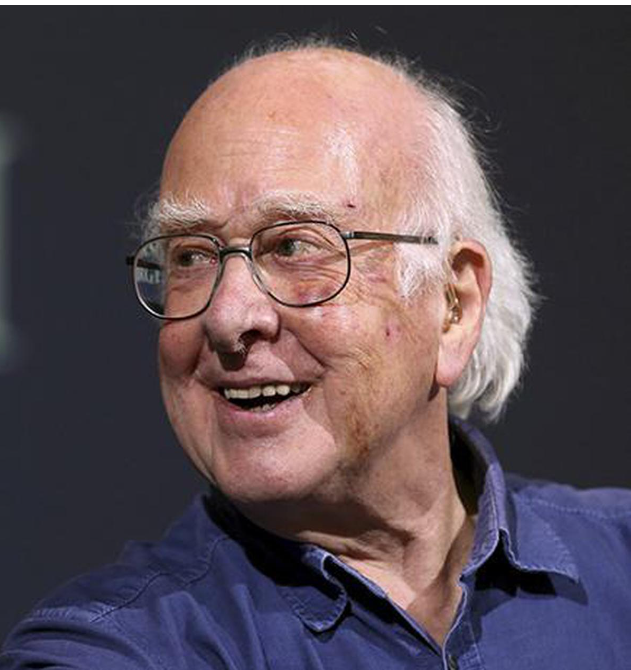CERN’s Tribute to Peter Higgs:–
Renowned physicist Peter Higgs, whose groundbreaking theoretical work proposed the existence of the Higgs boson particle, has passed away at the age of 94, as announced by the university. Peter Higgs, a distinguished figure in the field of theoretical physics, made significant contributions to our understanding of the fundamental particles and forces that govern the universe. His groundbreaking work, particularly his proposal of the existence of the Higgs boson particle in the 1960s, has had profound implications for the field of particle physics.
The Higgs boson, often referred to as the “God particle,” is a fundamental particle that is theorized to endow other particles with mass through the mechanism known as the Higgs field. The discovery of the Higgs boson in 2012, confirmed by experiments conducted at the Large Hadron Collider (LHC) at CERN, validated Higgs’ theoretical framework and represented a monumental achievement in the field of particle physics.
Throughout his illustrious career, Higgs made significant contributions to theoretical physics, earning numerous accolades and honors, including the Nobel Prize in Physics in 2013, which he shared with François Englert for their theoretical discoveries regarding the Higgs mechanism.Higgs’ pioneering work has left an indelible mark on the scientific community, revolutionizing our understanding of the fundamental forces and particles that shape the universe. His legacy will continue to inspire generations of physicists and researchers as they seek to unravel the mysteries of the cosmos. The passing of Peter Higgs marks the end of an era in the realm of theoretical physics, but his profound contributions to science will endure as a testament to his brilliance and intellectual legacy. 
Peter Higgs, born on May 29, 1929, in Newcastle upon Tyne, United Kingdom, was a British theoretical physicist renowned for his contributions to particle physics. He attended King’s College, London, where he obtained his bachelor’s degree in physics in 1950, followed by a master’s degree in 1951. Higgs then pursued his doctoral studies at King’s College under the supervision of Christopher Longuet-Higgins, completing his Ph.D. in 1954.
Peter Higgs After completing his doctoral studies, Higgs held various academic positions at different institutions, including positions at the University of Edinburgh, Imperial College London, and the University of Bristol. Throughout his career, Higgs focused on theoretical physics, particularly on the fundamental particles and forces that constitute the universe.
Higgs’ most significant contribution came in the 1960s when he proposed the mechanism that would later be known as the Higgs mechanism. In 1964, Higgs published a series of papers in which he theorized the existence of a new fundamental particle, now known as the Higgs boson, and proposed the concept of a field permeating the universe, now called the Higgs field. According to Higgs’ theory, particles gain mass by interacting with this field, which manifests through the exchange of virtual Higgs bosons.
The implications of Peter Higgs ‘ theoretical framework were profound, as it provided a mechanism to explain the origin of mass in the universe and filled a significant gap in the Standard Model of particle physics. The Higgs boson became a central component of the Standard Model, which describes the fundamental particles and their interactions, and its discovery was a crucial milestone in experimental particle physics.
After the discovery of the Higgs boson by experiments conducted at the Large Hadron Collider (LHC) at CERN in 2012, Higgs was awarded the Nobel Prize in Physics in 2013, jointly with François Englert, who independently proposed a similar mechanism in the same year as Higgs.
Throughout his career, Higgs received numerous awards and honors for his groundbreaking contributions to theoretical physics. His work revolutionized our understanding of the fundamental forces and particles that govern the universe and left an enduring legacy in the field of particle physics. Peter Higgs’ passing marks the end of a remarkable scientific journey, but his contributions to science will continue to inspire and shape the future of physics for generations to come. Also read:- Morgan Wallen Arrested: The Country Star’s Shocking Bar Incident